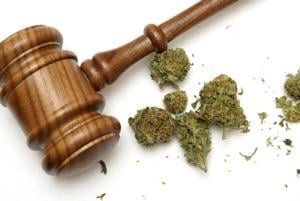If you or someone you care about has been charged with Drug Possession, Caramanna, Friedberg LLP is here to help.
What is Drug Possession?
 Under the Controlled Drug and Substances Act (CDSA), the possession of illegal drugs and other controlled substances is a punishable criminal offence. Drug Possession may result in conviction, imprisonment and heavy fines.
Under the Controlled Drug and Substances Act (CDSA), the possession of illegal drugs and other controlled substances is a punishable criminal offence. Drug Possession may result in conviction, imprisonment and heavy fines.
To be in possession of a substance, one must have knowledge and control of the substance. The definitions of "knowledge" and "control" have been intricately defined and interpreted through many years of case law. Many cases have been decided on whether an Accused is in "possession" of contraband. "Possession" is a complex area of law with which Caramanna, Friedberg LLP has vast experience.
Severity of Charges
The severity of the charges will depend on the type and quantity of the substance involved. It will also hinge on the alleged purpose for which the Accused was in possession of the substance. All controlled substances are classified depending on their perceived danger to users and society.
Schedule 1 substances carry the harshest penalties and Schedule II substances carry lower consequences. For instance, possession of heroin, a Schedule I drug, will carry much stiffer penalties than possession of marijuana, a Schedule II drug.
Why having a Lawyer is Critical
One must bear in mind, however, that being convicted of possessing a Schedule II drug is still a serious crime. Even a relatively small amount of marijuana for personal use can result in imprisonment for up to 6 months, and monetary fines up to $1000.
In 2012, amendments to the CDSA added mandatory minimum penalties for particular drug offences in certain circumstances. The bottom line is that any drug charge is serious. With that said, Possession for the purpose of Trafficking in a drug is a more significant offence than possession for personal use.
Once charged, many people believe they are in a position to defend themselves, especially if they are accused of a Schedule II offence. Caramanna, Friedberg LLP urges you to resist the inclination to face these charges alone, no matter how small they appear.
Seeking the expertise of a skilled defence lawyer with a track record of defending possession charges is in the Accused's best interest. Caramanna, Friedberg LLP has a track record of securing withdrawals and acquittals of charges.
Call us 27/4 for a consultation at (416) 924-5969.